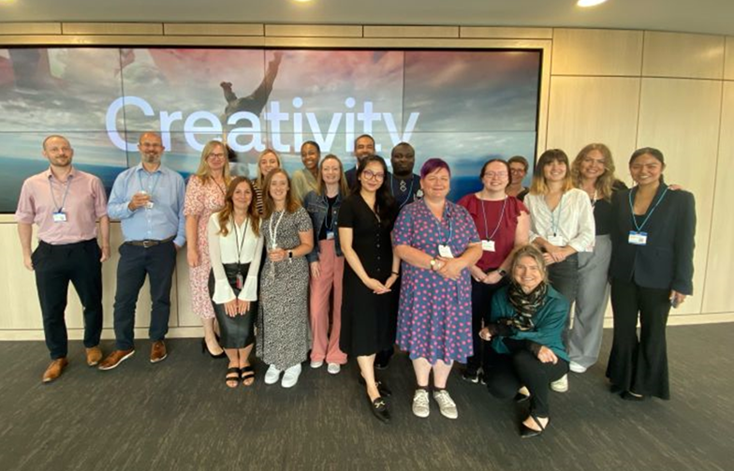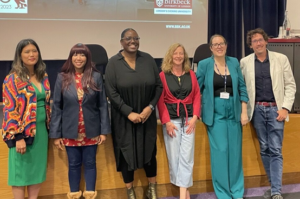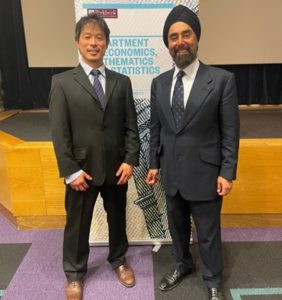Each year, students studying MSc Management Consultancy and Organisational Change work directly with clients of PA Consulting on a variety of challenging consultancy projects.
A unique aspect of Birkbeck’s MSc Management Consultancy and Organisational Change programme is that students have the option to complete the Consultancy Challenge in place of a traditional dissertation or research project.
Partnering with PA Consulting, the global innovation and transformation consultancy, students on the Consultancy Challenge are assembled into teams to work with a PA client on a real, live problem across an intense twelve-week period. Working with a client brief, the range of past projects include topics such as culture mapping, knowledge governance, performance management, change readiness, and hybrid working. For these students, it is an opportunity to deliver solutions to real problems that clients face, reflecting the work of management consultants, and experiencing a unique journey alongside team members who all offer different skills and knowledge.

MSc Management Consultancy and Organisational Change Students taking part in the 2022-2023 Consultancy Challenge
For the 2022 academic year, the client organisations were two large UK charities who provide essential support to vulnerable members of our society. Our first student team completed a project building a quality review framework, and the second student team worked to develop an effective wellbeing strategy. For 2023, the students have recently delivered their final presentations to their clients, again two UK charities. One team worked on developing an environmental plan for sustainable practice and the other on a project investigating non-financial reward.
Melissa O’Connor, Principal Consultant from PA Consulting commented on the students’ work: “The work that Birkbeck students do on these real-life, complex change projects has a huge, tangible impact on client organisations. They get to work on some of the most interesting challenges facing organisations today, including net zero carbon emissions, all while being supported and learning from real-life PA consultants”.
Dr David Gamblin, programme director and module convenor of the Consultancy Challenge, said: “It was a joy to see the students in action over the twelve-week consulting cycle, from initial scoping of the briefs with their clients to the final presentation of deliverables. Both of the clients were charities that provide important, valuable support, so it was very rewarding to see the students contribute in a positive way and make meaningful impact.”
Throughout the project, each student team is mentored by a consultant from PA, who provides support and guidance, as well as assurance that the work is of a standard that PA would be proud of.
The consulting projects culminated in July with the student teams presenting their final analyses and recommendations, which were met with positive reactions from the clients, PA consultants, and Birkbeck supervisors. The clients highlighted the hard work and professionalism of the students, their problem solving, the ability to adapt and to provide meaningful recommendations for positive impact.
The 2024 Consultancy Challenge is planned to kick-off in April 2024 – if you think you are up for the challenge, please do have a look at our Management Consultancy and Organisational Change programme page, or contact David Gamblin to learn more.
Further information



